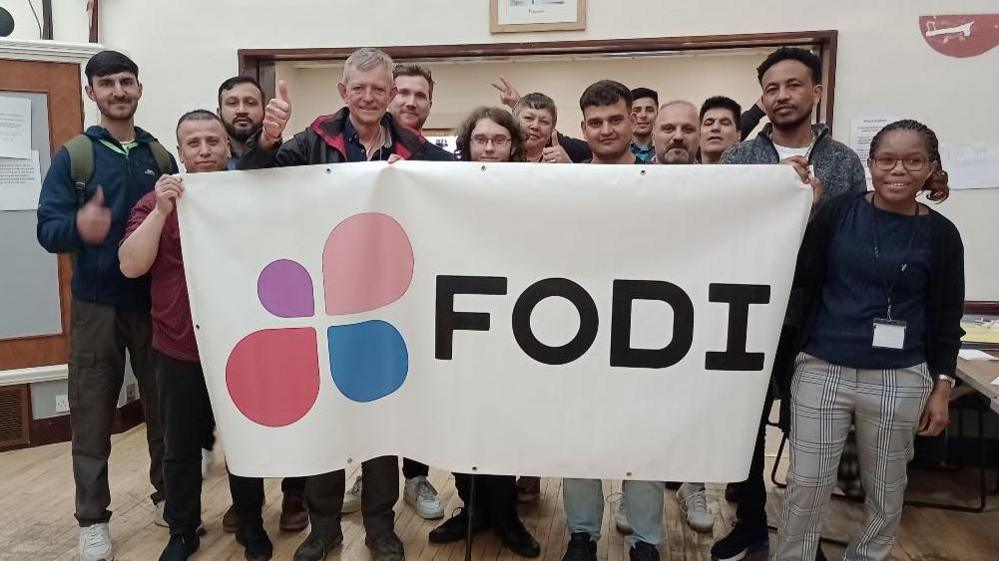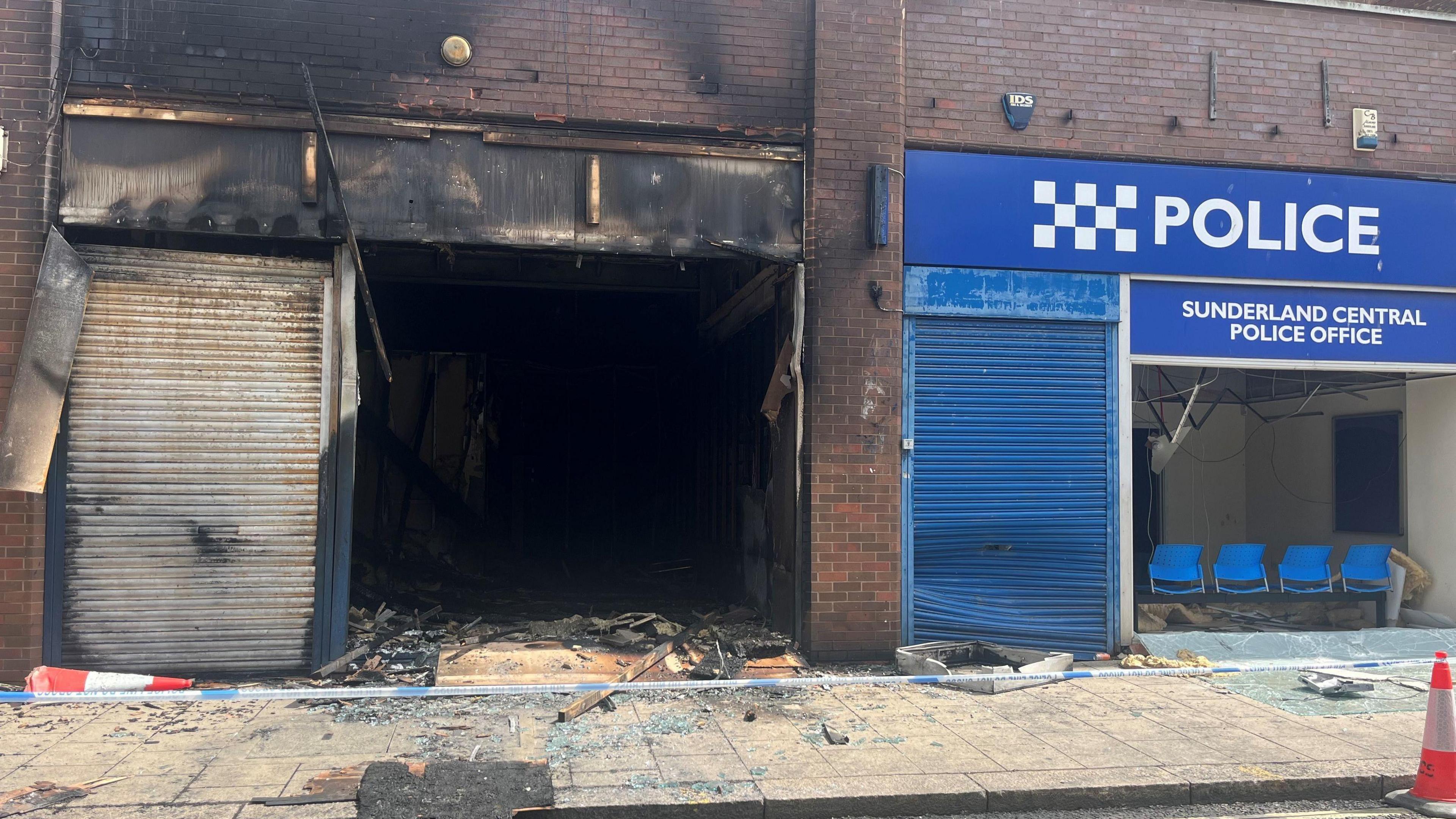Riots 'strengthened' city's refugee week
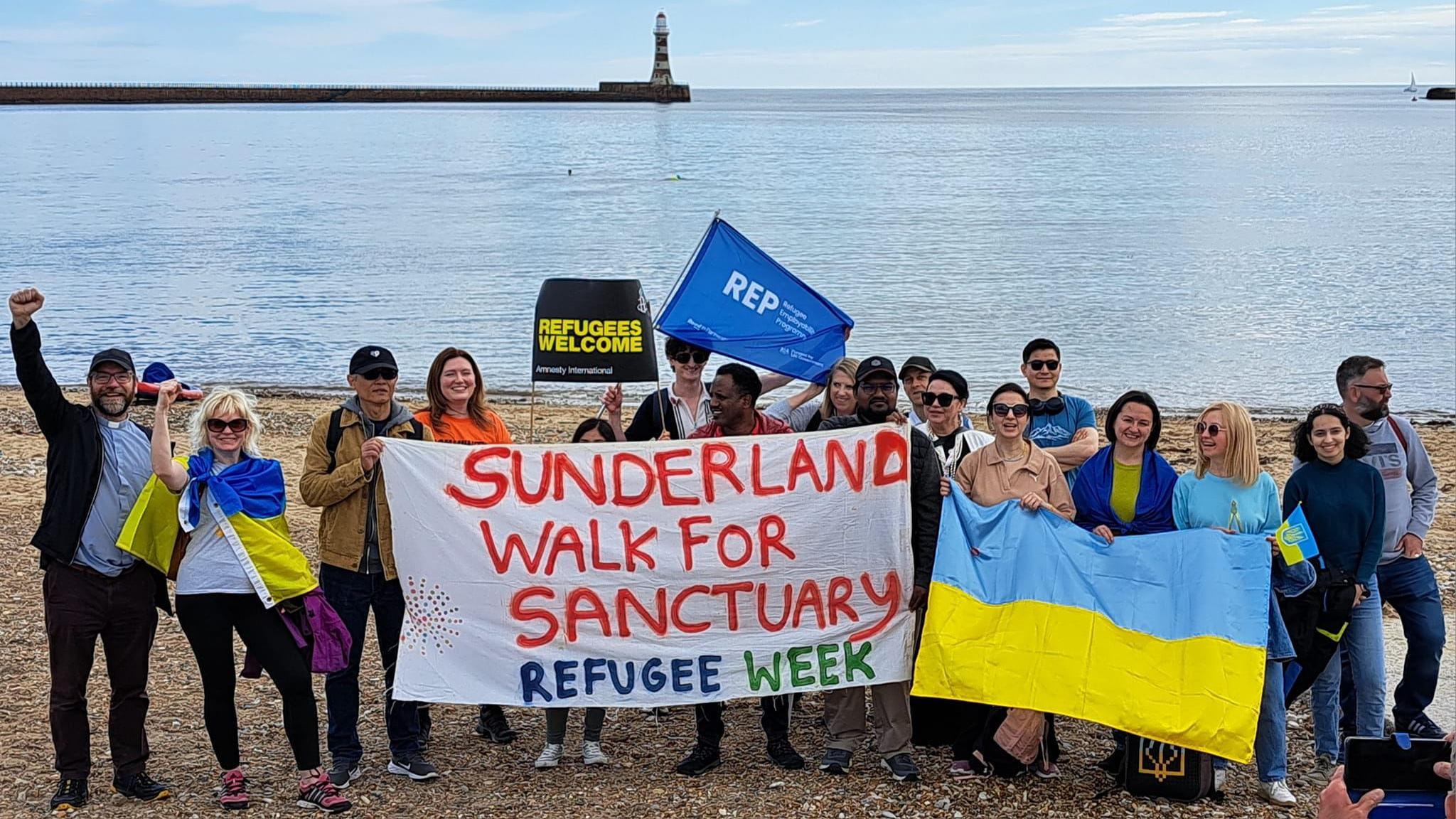
A Walk for Sanctuary will start off a week of events
- Published
Unrest last summer has motivated volunteers to work even harder to make people feel welcome, organisers of a city's annual refugee week have said.
Sunderland Refugee Week runs until Sunday, with several hundred people expected to attend.
Steve Newman, chair of Friends of the Drop In For Asylum Seekers and Refugees (FODI), said it was a way to show asylum seekers they were valued and the community wanted to interact with them.
He said while there had been "occasional bumps in the road", Sunderland was "a welcoming city".
Mr Newman said there was a sense of excitement and anticipation ahead of events.
A Walk of Sanctuary will start off the week, with a football tournament and a community lunch also planned.
The events are organised by several charities across the city, including FODI.
'Positive feel'
Cars were set on fire and buildings were damaged during the unrest, which happened after three young girls were murdered in Southport on 29 July and misinformation was spread online that their killer had been an asylum seeker.
Violence broke out elsewhere in England, including Middlesbrough and Hartlepool.
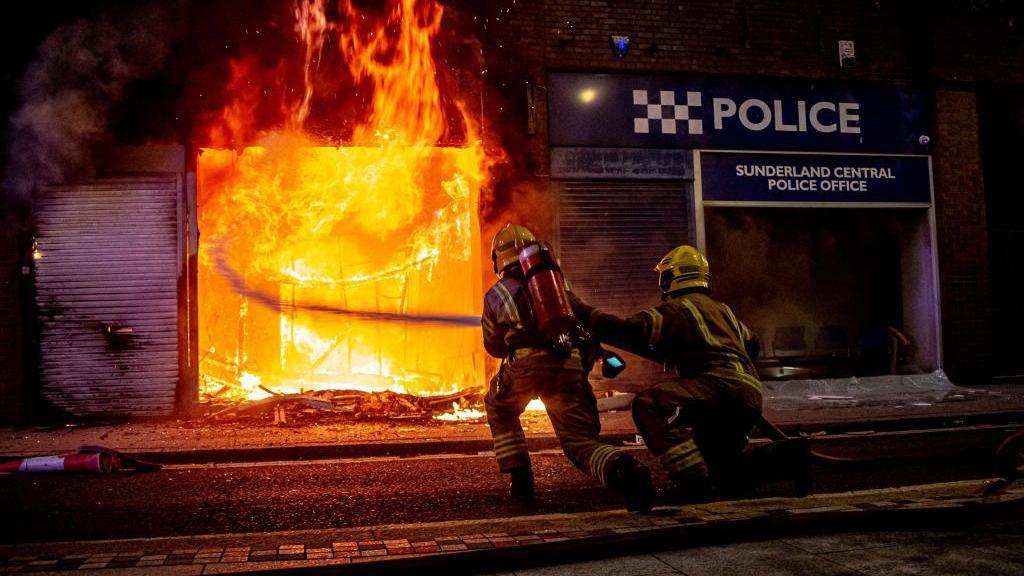
A Citizens' Advice office in Sunderland, located next to a police station, was torched on the night
Mr Newman said the riots on 2 August had been "traumatic for a lot of people", but the majority of asylum seekers had a positive view of Sunderland.
"The response from the good people of Sunderland straight away was amazing. I'm thinking of the clean-up on the Saturday morning, the vigil in solidarity," Mr Newman said.
"Since then I think the events of that night have given an extra impetus to people who are on the side of refugees and asylum seekers to feel that we've all got to work harder to encourage people to feel welcome and to give them a positive feel of the city."
Mr Newman said new events aiming to bring different community groups together had also been created in the wake of the unrest, including Unity in the Community.
"There have been the occasional bumps in the road, but essentially Sunderland is a welcoming city," he said.
Follow BBC Sunderland on X, external, Facebook, external, Nextdoor and Instagram, external.
Get in touch
Do you have a story suggestion for BBC Wear?
Related topics
More stories from across the BBC
- Published16 November 2023
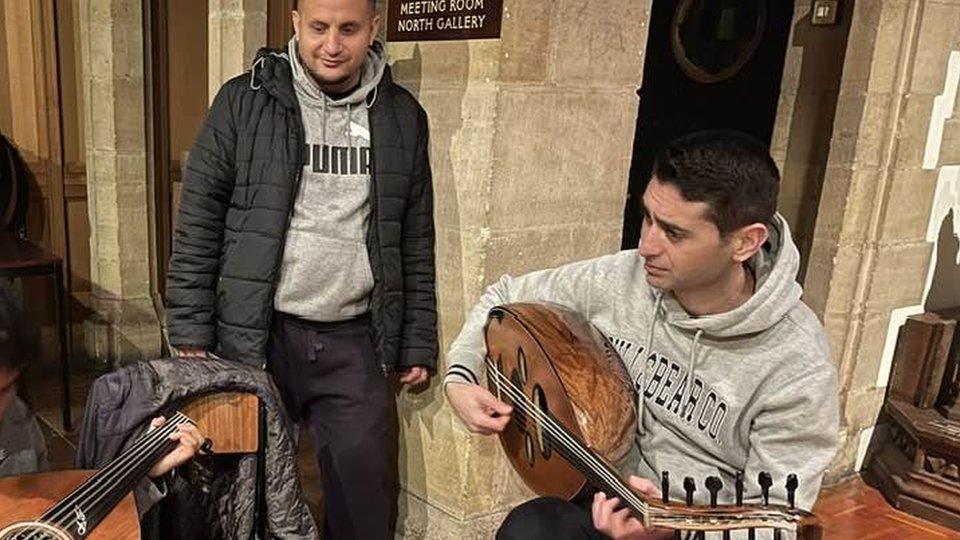
- Published4 August 2024
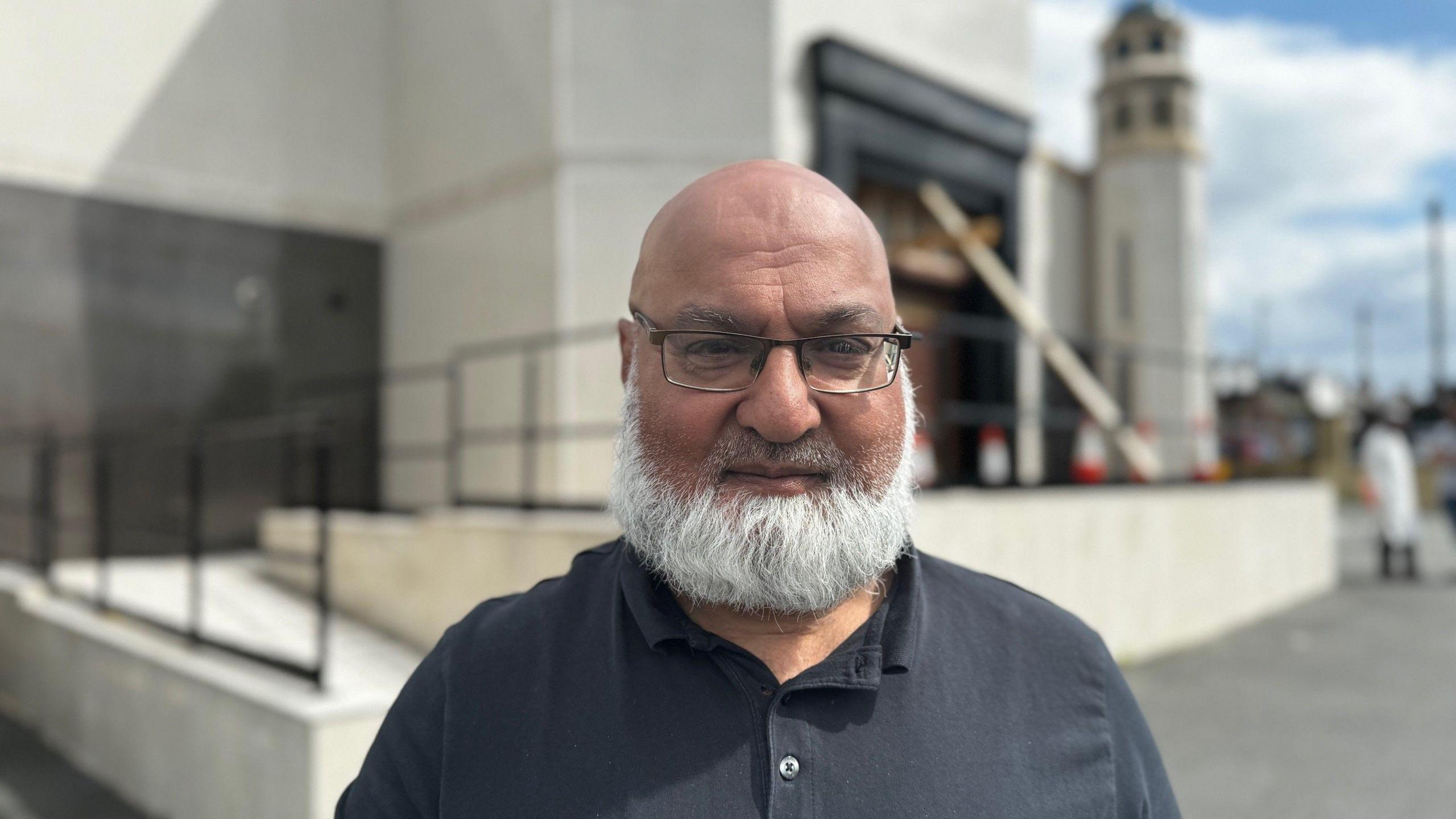
- Published7 August 2024
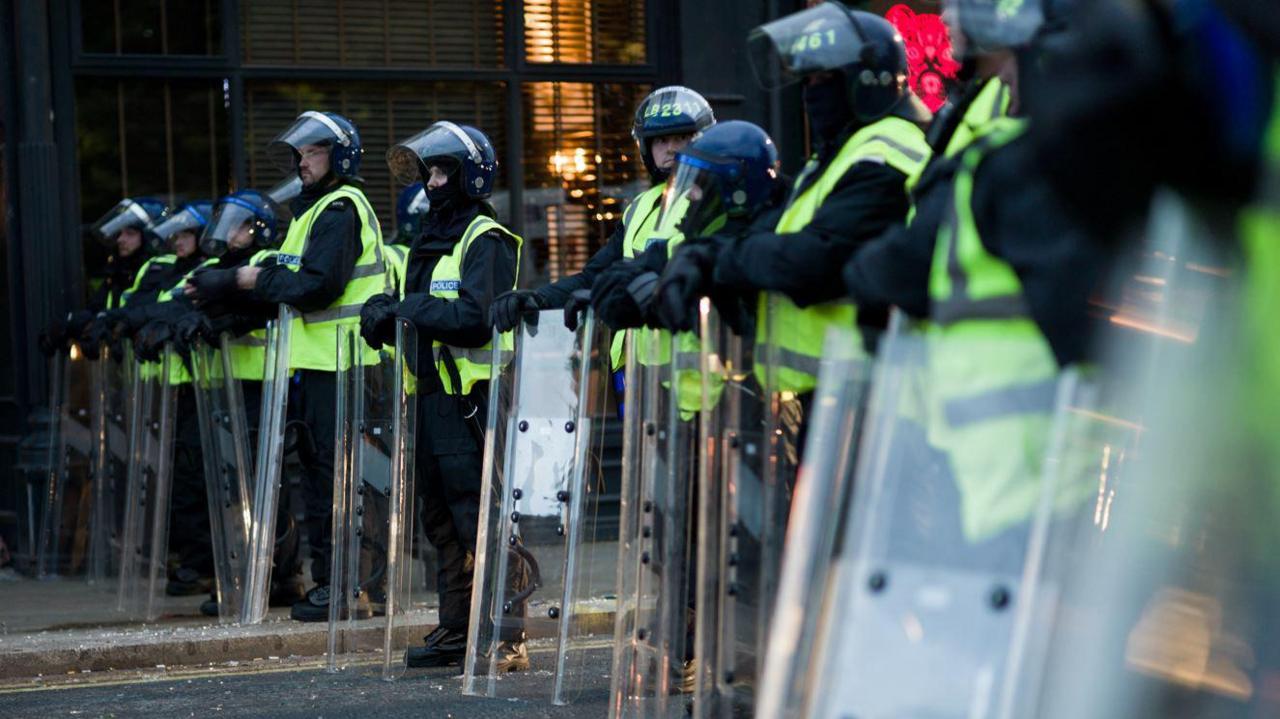
- Published22 September 2024
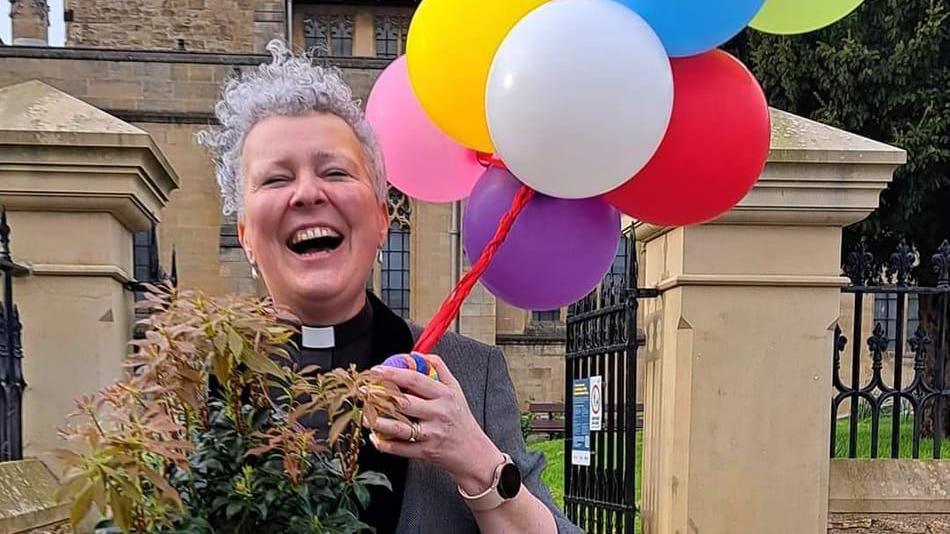
- Published16 June 2024
